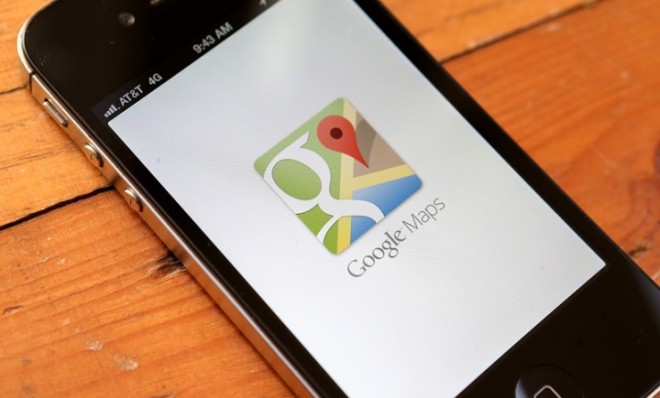Why does Google build apps for its rival Apple's iPhone?
Why help a key competitor? Two words: Advertising and data

A free daily email with the biggest news stories of the day – and the best features from TheWeek.com
You are now subscribed
Your newsletter sign-up was successful
There isn't any other way to say it: Apple and Google really don't like each other. Apple CEO Steve Jobs vowed to destroy the Google geniuses behind the Android operating system for allegedly stealing the basic mechanics of the iPhone. Apple and Google-partner Samsung are constantly at one another's throats over patents. And most recently new Apple CEO Tim Cook gave two of Google's most popular products — Google Maps and YouTube — the boot from iOS 6.
Then the unthinkable happened: Fans started turning on Apple. Even the most gushy tech critic had to admit that Apple's replacement for Google Maps was a train wreck, a rare blight on the company's otherwise stainless track record (a failure, notes Zara Kessler at Bloomberg, which ironically might ultimately benefit Apple).
Why, then, would Google throw its chief rival a life preserver this week and deliver Google Maps to iOS — as well as handing over Chrome and an awesome new Gmail app in recent weeks? Two main reasons:
The Week
Escape your echo chamber. Get the facts behind the news, plus analysis from multiple perspectives.

Sign up for The Week's Free Newsletters
From our morning news briefing to a weekly Good News Newsletter, get the best of The Week delivered directly to your inbox.
From our morning news briefing to a weekly Good News Newsletter, get the best of The Week delivered directly to your inbox.
1. Potential advertising: "Google doesn't make money off of Android which is open source; they make money when people use Google services," Joel Spolsky, CEO of Stack Overflow, tells Wired. Google Maps on the iPhone doesn't have ads yet, although the Android version does. In the end, Google's primary concern is to get its services in front of as many eyeballs as possible — even if those eyeballs are peering into an iPhone.
2. More data with which to make its products better: Google Maps is every marketer's dream. Mapping software gives them invaluable consumer data to work with, like the city you live in, the stores you shop at, the restaurants you frequent, where you get your coffee, and much, much more. "Google needs the traffic that iOS users bring," says Casey Newton at CNET. Those millions of iPhone owners unknowingly feed Google the analytics it needs to make Google Maps the superior, celebrated product it's become. The same goes for Chrome. And Gmail.
And "Google is hardly the first company to aggressively support a rival platform for selfish reasons," says Ryan Tate at Wired.
Microsoft was a strong backer of Apple's Macintosh for decades because its core business was selling applications [Word, Excel, etc.], not Microsoft's competing operating system Windows… Google's willingness to ship iOS apps could look smarter as time goes on. The company trounces Apple when it comes to all things cloud, not just maps and e-mail; its social network, search engine, and highly optimized data centers could give its iOS apps an even bigger edge in the coming years.
A free daily email with the biggest news stories of the day – and the best features from TheWeek.com
-
 Crisis in Cuba: a ‘golden opportunity’ for Washington?
Crisis in Cuba: a ‘golden opportunity’ for Washington?Talking Point The Trump administration is applying the pressure, and with Latin America swinging to the right, Havana is becoming more ‘politically isolated’
-
 5 thoroughly redacted cartoons about Pam Bondi protecting predators
5 thoroughly redacted cartoons about Pam Bondi protecting predatorsCartoons Artists take on the real victim, types of protection, and more
-
 Palestine Action and the trouble with defining terrorism
Palestine Action and the trouble with defining terrorismIn the Spotlight The issues with proscribing the group ‘became apparent as soon as the police began putting it into practice’